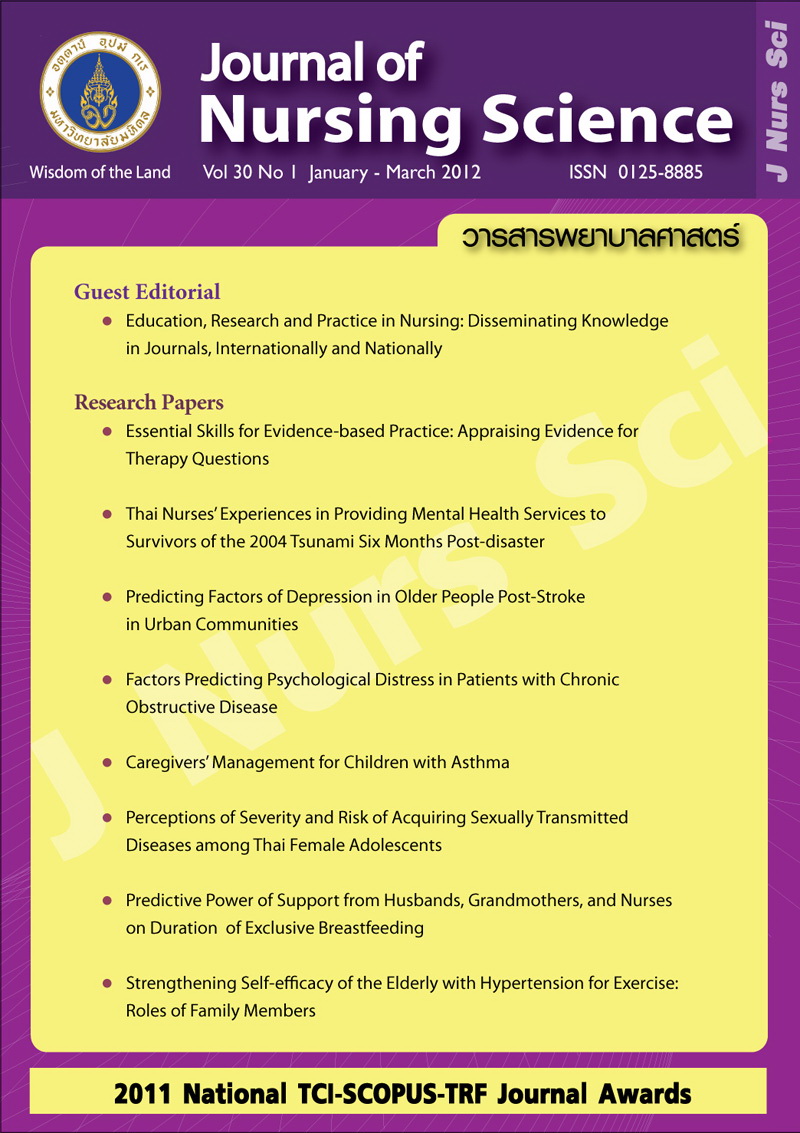Essential Skills for Evidence-based Practice: Appraising Evidence for Therapy Questions
Main Article Content
Abstract
practice.
Article Details
Copyright Notice: Nursing Science Journal of Thailand has exclusive rights to publish and distribute the manuscript and all contents therein. Without the journal’s permission, the dissemination of the manuscript in another journal or online, and the reproduction of the manuscript for non-educational purpose are prohibited.

Disclaimer: The opinion expressed and figures provided in this journal, NSJT, are the sole responsibility of the authors. The editorial board bears no responsibility in this regard.
References
Grace J. Essential skills for evidence-based practice: Understanding and using systematic reviews. J Nurs Sci. 2011;28(4):20-5.
Guyatt G, Rennie D, editors. (eds.) Users’ guides to the medical literature. Chicago IL: AMA Press; 2002.
Campbell, DT, Stanley, JC. Experimental and quasi-experimental designs for research. Boston: Houghton Mifflin; 1963.
Grace J. Essential skills for evidence-based practice: Statistics for therapy questions. J Nurs Sci. 2010; 28(1):8-12.


